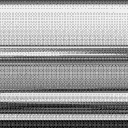Simplesequencer / Game of Life (Ofelia / Emscripten)
https://puredatagui.handmadeproductions.de/ doesn't work…
unreachable code after return statement
EmscriptenExample.js:8288:4
unreachable code after return statement
EmscriptenExample.js:8412:4
undefined puredatagui.handmadeproductions.de:41:33
printErr https://puredatagui.handmadeproductions.de/:41
abort https://puredatagui.handmadeproductions.de/EmscriptenExample.js:858
_abort https://puredatagui.handmadeproductions.de/EmscriptenExample.js:5283
<anonyme> https://puredatagui.handmadeproductions.de/EmscriptenExample.wasm:124923
<anonyme> https://puredatagui.handmadeproductions.de/EmscriptenExample.wasm:6889037
<anonyme> https://puredatagui.handmadeproductions.de/EmscriptenExample.wasm:6889238
<anonyme> https://puredatagui.handmadeproductions.de/EmscriptenExample.wasm:858086
<anonyme> https://puredatagui.handmadeproductions.de/EmscriptenExample.wasm:766433
<anonyme> https://puredatagui.handmadeproductions.de/EmscriptenExample.wasm:1044857
<anonyme> https://puredatagui.handmadeproductions.de/EmscriptenExample.wasm:1488944
<anonyme> https://puredatagui.handmadeproductions.de/EmscriptenExample.wasm:795390
<anonyme> https://puredatagui.handmadeproductions.de/EmscriptenExample.wasm:193441
<anonyme> https://puredatagui.handmadeproductions.de/EmscriptenExample.wasm:2719626
<anonyme> https://puredatagui.handmadeproductions.de/EmscriptenExample.wasm:3663705
<anonyme> https://puredatagui.handmadeproductions.de/EmscriptenExample.wasm:2876770
<anonyme> https://puredatagui.handmadeproductions.de/EmscriptenExample.wasm:4943251
<anonyme> https://puredatagui.handmadeproductions.de/EmscriptenExample.wasm:4467908
_main https://puredatagui.handmadeproductions.de/EmscriptenExample.js:9696
callMain https://puredatagui.handmadeproductions.de/EmscriptenExample.js:10600
doRun https://puredatagui.handmadeproductions.de/EmscriptenExample.js:10640
run https://puredatagui.handmadeproductions.de/EmscriptenExample.js:10649
exception thrown: RuntimeError: abort(undefined). Build with -s ASSERTIONS=1 for more info.,abort@https://puredatagui.handmadeproductions.de/EmscriptenExample.js:862:13
_abort@https://puredatagui.handmadeproductions.de/EmscriptenExample.js:5283:5
@https://puredatagui.handmadeproductions.de/EmscriptenExample.wasm:wasm-function[497]:0x1e7fb
@https://puredatagui.handmadeproductions.de/EmscriptenExample.wasm:wasm-function[12138]:0x691e4d
@https://puredatagui.handmadeproductions.de/EmscriptenExample.wasm:wasm-function[12139]:0x691f16
@https://puredatagui.handmadeproductions.de/EmscriptenExample.wasm:wasm-function[2153]:0xd17e6
@https://puredatagui.handmadeproductions.de/EmscriptenExample.wasm:wasm-function[1931]:0xbb1e1
@https://puredatagui.handmadeproductions.de/EmscriptenExample.wasm:wasm-function[2449]:0xff179
@https://puredatagui.handmadeproductions.de/EmscriptenExample.wasm:wasm-function[3427]:0x16b830
@https://puredatagui.handmadeproductions.de/EmscriptenExample.wasm:wasm-function[1989]:0xc22fe
@https://puredatagui.handmadeproductions.de/EmscriptenExample.wasm:wasm-function[655]:0x2f3a1
@https://puredatagui.handmadeproductions.de/EmscriptenExample.wasm:wasm-function[6070]:0x297f8a
@https://puredatagui.handmadeproductions.de/EmscriptenExample.wasm:wasm-function[9295]:0x37e759
@https://puredatagui.handmadeproductions.de/EmscriptenExample.wasm:wasm-function[6933]:0x2be562
@https://puredatagui.handmadeproductions.de/EmscriptenExample.wasm:wasm-function[10347]:0x4b6d93
@https://puredatagui.handmadeproductions.de/EmscriptenExample.wasm:wasm-function[9921]:0x442cc4
Module._main@https://puredatagui.handmadeproductions.de/EmscriptenExample.js:9696:60
callMain@https://puredatagui.handmadeproductions.de/EmscriptenExample.js:10600:32
doRun@https://puredatagui.handmadeproductions.de/EmscriptenExample.js:10640:21
run/<@https://puredatagui.handmadeproductions.de/EmscriptenExample.js:10649:13
puredatagui.handmadeproductions.de:41:33
printErr https://puredatagui.handmadeproductions.de/:41
callMain https://puredatagui.handmadeproductions.de/EmscriptenExample.js:10613
doRun https://puredatagui.handmadeproductions.de/EmscriptenExample.js:10640
run https://puredatagui.handmadeproductions.de/EmscriptenExample.js:10649
Uncaught RuntimeError: abort(undefined). Build with -s ASSERTIONS=1 for more info.
abort https://puredatagui.handmadeproductions.de/EmscriptenExample.js:862
_abort https://puredatagui.handmadeproductions.de/EmscriptenExample.js:5283
_main https://puredatagui.handmadeproductions.de/EmscriptenExample.js:9696
callMain https://puredatagui.handmadeproductions.de/EmscriptenExample.js:10600
doRun https://puredatagui.handmadeproductions.de/EmscriptenExample.js:10640
run https://puredatagui.handmadeproductions.de/EmscriptenExample.js:10649
EmscriptenExample.js:862:13
abort https://puredatagui.handmadeproductions.de/EmscriptenExample.js:862
_abort https://puredatagui.handmadeproductions.de/EmscriptenExample.js:5283
<anonyme> https://puredatagui.handmadeproductions.de/EmscriptenExample.wasm:124923
<anonyme> https://puredatagui.handmadeproductions.de/EmscriptenExample.wasm:6889037
<anonyme> https://puredatagui.handmadeproductions.de/EmscriptenExample.wasm:6889238
<anonyme> https://puredatagui.handmadeproductions.de/EmscriptenExample.wasm:858086
<anonyme> https://puredatagui.handmadeproductions.de/EmscriptenExample.wasm:766433
<anonyme> https://puredatagui.handmadeproductions.de/EmscriptenExample.wasm:1044857
<anonyme> https://puredatagui.handmadeproductions.de/EmscriptenExample.wasm:1488944
<anonyme> https://puredatagui.handmadeproductions.de/EmscriptenExample.wasm:795390
<anonyme> https://puredatagui.handmadeproductions.de/EmscriptenExample.wasm:193441
<anonyme> https://puredatagui.handmadeproductions.de/EmscriptenExample.wasm:2719626
<anonyme> https://puredatagui.handmadeproductions.de/EmscriptenExample.wasm:3663705
<anonyme> https://puredatagui.handmadeproductions.de/EmscriptenExample.wasm:2876770
<anonyme> https://puredatagui.handmadeproductions.de/EmscriptenExample.wasm:4943251
<anonyme> https://puredatagui.handmadeproductions.de/EmscriptenExample.wasm:4467908
_main https://puredatagui.handmadeproductions.de/EmscriptenExample.js:9696
callMain https://puredatagui.handmadeproductions.de/EmscriptenExample.js:10600
doRun https://puredatagui.handmadeproductions.de/EmscriptenExample.js:10640
run https://puredatagui.handmadeproductions.de/EmscriptenExample.js:10649
Simplesequencer / Game of Life (Ofelia / Emscripten)
Hi,
with Firefox 88.0.1, Ubuntu 21.04 it loads and then Exception thrown, see JavaScript console:
unreachable code after return statement
EmscriptenExample.js:8289:4
unreachable code after return statement
EmscriptenExample.js:8413:4
undefined gameoflife.handmadeproductions.de:41:33
printErr https://gameoflife.handmadeproductions.de/:41
abort https://gameoflife.handmadeproductions.de/EmscriptenExample.js:859
_abort https://gameoflife.handmadeproductions.de/EmscriptenExample.js:5284
<anonyme> https://gameoflife.handmadeproductions.de/EmscriptenExample.wasm:124923
<anonyme> https://gameoflife.handmadeproductions.de/EmscriptenExample.wasm:6889037
<anonyme> https://gameoflife.handmadeproductions.de/EmscriptenExample.wasm:6889238
<anonyme> https://gameoflife.handmadeproductions.de/EmscriptenExample.wasm:858086
<anonyme> https://gameoflife.handmadeproductions.de/EmscriptenExample.wasm:766433
<anonyme> https://gameoflife.handmadeproductions.de/EmscriptenExample.wasm:1044857
<anonyme> https://gameoflife.handmadeproductions.de/EmscriptenExample.wasm:1488944
<anonyme> https://gameoflife.handmadeproductions.de/EmscriptenExample.wasm:795390
<anonyme> https://gameoflife.handmadeproductions.de/EmscriptenExample.wasm:193441
<anonyme> https://gameoflife.handmadeproductions.de/EmscriptenExample.wasm:2719626
<anonyme> https://gameoflife.handmadeproductions.de/EmscriptenExample.wasm:3663705
<anonyme> https://gameoflife.handmadeproductions.de/EmscriptenExample.wasm:2876770
<anonyme> https://gameoflife.handmadeproductions.de/EmscriptenExample.wasm:4943251
<anonyme> https://gameoflife.handmadeproductions.de/EmscriptenExample.wasm:4467908
_main https://gameoflife.handmadeproductions.de/EmscriptenExample.js:9697
callMain https://gameoflife.handmadeproductions.de/EmscriptenExample.js:10601
doRun https://gameoflife.handmadeproductions.de/EmscriptenExample.js:10641
run https://gameoflife.handmadeproductions.de/EmscriptenExample.js:10650
(Asynchrone : setTimeout handler)
run https://gameoflife.handmadeproductions.de/EmscriptenExample.js:10646
runCaller https://gameoflife.handmadeproductions.de/EmscriptenExample.js:10591
removeRunDependency https://gameoflife.handmadeproductions.de/EmscriptenExample.js:848
receiveInstance https://gameoflife.handmadeproductions.de/EmscriptenExample.js:920
receiveInstantiatedSource https://gameoflife.handmadeproductions.de/EmscriptenExample.js:924
(Asynchrone : promise callback)
instantiateAsync https://gameoflife.handmadeproductions.de/EmscriptenExample.js:940
(Asynchrone : promise callback)
instantiateAsync https://gameoflife.handmadeproductions.de/EmscriptenExample.js:938
createWasm https://gameoflife.handmadeproductions.de/EmscriptenExample.js:959
<anonyme> https://gameoflife.handmadeproductions.de/EmscriptenExample.js:9687
exception thrown: RuntimeError: abort(undefined). Build with -s ASSERTIONS=1 for more info.,abort@https://gameoflife.handmadeproductions.de/EmscriptenExample.js:863:13
_abort@https://gameoflife.handmadeproductions.de/EmscriptenExample.js:5284:5
@https://gameoflife.handmadeproductions.de/EmscriptenExample.wasm:wasm-function[497]:0x1e7fb
@https://gameoflife.handmadeproductions.de/EmscriptenExample.wasm:wasm-function[12138]:0x691e4d
@https://gameoflife.handmadeproductions.de/EmscriptenExample.wasm:wasm-function[12139]:0x691f16
@https://gameoflife.handmadeproductions.de/EmscriptenExample.wasm:wasm-function[2153]:0xd17e6
@https://gameoflife.handmadeproductions.de/EmscriptenExample.wasm:wasm-function[1931]:0xbb1e1
@https://gameoflife.handmadeproductions.de/EmscriptenExample.wasm:wasm-function[2449]:0xff179
@https://gameoflife.handmadeproductions.de/EmscriptenExample.wasm:wasm-function[3427]:0x16b830
@https://gameoflife.handmadeproductions.de/EmscriptenExample.wasm:wasm-function[1989]:0xc22fe
@https://gameoflife.handmadeproductions.de/EmscriptenExample.wasm:wasm-function[655]:0x2f3a1
@https://gameoflife.handmadeproductions.de/EmscriptenExample.wasm:wasm-function[6070]:0x297f8a
@https://gameoflife.handmadeproductions.de/EmscriptenExample.wasm:wasm-function[9295]:0x37e759
@https://gameoflife.handmadeproductions.de/EmscriptenExample.wasm:wasm-function[6933]:0x2be562
@https://gameoflife.handmadeproductions.de/EmscriptenExample.wasm:wasm-function[10347]:0x4b6d93
@https://gameoflife.handmadeproductions.de/EmscriptenExample.wasm:wasm-function[9921]:0x442cc4
Module._main@https://gameoflife.handmadeproductions.de/EmscriptenExample.js:9697:60
callMain@https://gameoflife.handmadeproductions.de/EmscriptenExample.js:10601:32
doRun@https://gameoflife.handmadeproductions.de/EmscriptenExample.js:10641:21
run/<@https://gameoflife.handmadeproductions.de/EmscriptenExample.js:10650:13
setTimeout handler*run@https://gameoflife.handmadeproductions.de/EmscriptenExample.js:10646:19
runCaller@https://gameoflife.handmadeproductions.de/EmscriptenExample.js:10591:9
removeRunDependency@https://gameoflife.handmadeproductions.de/EmscriptenExample.js:848:13
receiveInstance@https://gameoflife.handmadeproductions.de/EmscriptenExample.js:920:28
receiveInstantiatedSource@https://gameoflife.handmadeproductions.de/EmscriptenExample.js:924:24
promise callback*instantiateAsync/<@https://gameoflife.handmadeproductions.de/EmscriptenExample.js:940:31
promise callback*instantiateAsync@https://gameoflife.handmadeproductions.de/EmscriptenExample.js:938:16
createWasm@https://gameoflife.handmadeproductions.de/EmscriptenExample.js:959:5
@https://gameoflife.handmadeproductions.de/EmscriptenExample.js:9687:11
gameoflife.handmadeproductions.de:41:33
printErr https://gameoflife.handmadeproductions.de/:41
callMain https://gameoflife.handmadeproductions.de/EmscriptenExample.js:10614
doRun https://gameoflife.handmadeproductions.de/EmscriptenExample.js:10641
run https://gameoflife.handmadeproductions.de/EmscriptenExample.js:10650
(Asynchrone : setTimeout handler)
run https://gameoflife.handmadeproductions.de/EmscriptenExample.js:10646
runCaller https://gameoflife.handmadeproductions.de/EmscriptenExample.js:10591
removeRunDependency https://gameoflife.handmadeproductions.de/EmscriptenExample.js:848
receiveInstance https://gameoflife.handmadeproductions.de/EmscriptenExample.js:920
receiveInstantiatedSource https://gameoflife.handmadeproductions.de/EmscriptenExample.js:924
(Asynchrone : promise callback)
instantiateAsync https://gameoflife.handmadeproductions.de/EmscriptenExample.js:940
(Asynchrone : promise callback)
instantiateAsync https://gameoflife.handmadeproductions.de/EmscriptenExample.js:938
createWasm https://gameoflife.handmadeproductions.de/EmscriptenExample.js:959
<anonyme> https://gameoflife.handmadeproductions.de/EmscriptenExample.js:9687
Uncaught RuntimeError: abort(undefined). Build with -s ASSERTIONS=1 for more info.
abort https://gameoflife.handmadeproductions.de/EmscriptenExample.js:863
_abort https://gameoflife.handmadeproductions.de/EmscriptenExample.js:5284
_main https://gameoflife.handmadeproductions.de/EmscriptenExample.js:9697
callMain https://gameoflife.handmadeproductions.de/EmscriptenExample.js:10601
doRun https://gameoflife.handmadeproductions.de/EmscriptenExample.js:10641
run https://gameoflife.handmadeproductions.de/EmscriptenExample.js:10650
setTimeout handler*run https://gameoflife.handmadeproductions.de/EmscriptenExample.js:10646
runCaller https://gameoflife.handmadeproductions.de/EmscriptenExample.js:10591
removeRunDependency https://gameoflife.handmadeproductions.de/EmscriptenExample.js:848
receiveInstance https://gameoflife.handmadeproductions.de/EmscriptenExample.js:920
receiveInstantiatedSource https://gameoflife.handmadeproductions.de/EmscriptenExample.js:924
promise callback*instantiateAsync/< https://gameoflife.handmadeproductions.de/EmscriptenExample.js:940
promise callback*instantiateAsync https://gameoflife.handmadeproductions.de/EmscriptenExample.js:938
createWasm https://gameoflife.handmadeproductions.de/EmscriptenExample.js:959
<anonymous> https://gameoflife.handmadeproductions.de/EmscriptenExample.js:9687
EmscriptenExample.js:863:13
CPU usage of idle patches, tabread4~?
Hi zigmhount!
This is a copy paste of a message I (hopefully) sent via chat as well:
I figured I’d tell you a bit more about my patch so we can see if there’s overlap. Switch is definitely an overlap. I’m not using a metronome at all on mine. The inspiration was two loopers I love: the line 6 DL4 and the EHX 45000. It’s going to be 4 foot switches. Record, play, previous and next. Record and play function the way they do in the DL4. Record to start a new loop, record again to set length and start overdubbing or play to simply set length and start looping. From there record works like overdub on/ off toggle and play stop or restarts the loop. Previous and next are where it gets interesting.
There’s a 7 segment display (meaning a 1 digit number read out) that tells you what loop you’re “focused” on. It starts on 0. You can’t change focus until you have a loop going. Once you do, prev or next change focus. If you change focus while recording, it closes the loop you’re on and starts playing it, then immediately starts recording the next loop. The next loop though can be as long as you want. However, silence gets added to the end of the loop when you are done so that it matches up with a multiple of “loop 0”
In other words, loop 0, acts as a measure length and all other loops are set to a multiple of that measure length.
But...they can start anywhere you want. To the person playing the looper, it will feel like individual loops are all overdubs of the first loop, just at any length you want. I don’t know if I’m explaining this so well, but the point is, you don’t have to worry about timing or a metronome with this. You don’t have to wait for the beginning of measures to start or end loops. Once you have the timing of the first loop down there’s no waiting... you start recording and playing whenever you want as long as you want t and if it’s in time when you play it it will be i the recording.
So far I have recording and overdubbing down on loop 0 WITHOUT CLICKS. this took a lot of work and messing. Sounds like you are struggling with that now. Hardware is important yes.
I’m running it on a rasberry pi 4b 4 gig memory but with a pi sound audio interface. It’s more expensive than the pi but the latency and sound quality are GREAT. I also wanted to make the hardware all independent eventually and have the whole thing fit i it’s own box. The foot pedals run on an arduino that talks through comport to the pi and pure data.
In pure data I’m timing the loops and recording them via tabwrite. I’m then playing them with tabplay with a 0 $1 message box where 0 is start and $1 is the length, rounded to block size, of the recording. I record and play the same arrays for each loop at the same time while overdubbing, but delay the recording so it’s a few blocks back from the tabplay. The delay on the recording seemed to help elimate clocks as well. So did using tabplay instead of tabread 4. I think the phasor is CPU expensive or something. I don’t know. When I start / stop recording I use a line ramp on the volume going into the recording of 5 msecs. This is also necessary to eliminate clicks. Also, I had to stop resizing or clearing arrays as both cause clicks. Now I just overwrite what I need and don’t read from what I didn’t overwrite (If that makes sense).
If you are getting clicking I would try upping block size, buffer size and just delaying the actual recording (delay the audio in the same amount) giving the computer time to think avoids drop outs. Also you don’t want monitoring if you can avoid it. I don’t know if you are using a mic or what.
Hopefully some of this made sense.
enzien heavy java script example
i tried to run the examples: https://github.com/enzienaudio/examples/tree/master/javascript
http://libpd.handmadeproductions.de/
http://libpd2.handmadeproductions.de/
the chip example works fine, but the sampleplayer gives me this error message when i start to play the sample:
warning: a problem occurred in builtin C++ name demangling; build with -s DEMANGLE_SUPPORT=1 to link in libcxxabi demangling
42samplePlayerLib.min.js:24639 Uncaught abort() at Error
at jsStackTrace (http://libpd2.handmadeproductions.de/js/samplePlayerLib.min.js:1351:13)
at stackTrace (http://libpd2.handmadeproductions.de/js/samplePlayerLib.min.js:1368:22)
at Object.abort (http://libpd2.handmadeproductions.de/js/samplePlayerLib.min.js:24633:44)
at _abort (http://libpd2.handmadeproductions.de/js/samplePlayerLib.min.js:1923:22)
at _malloc (http://libpd2.handmadeproductions.de/js/samplePlayerLib.min.js:19069:9)
at __ZL26mq_getOrCreateNodeFromPoolP14HvMessageQueue [mq_getOrCreateNodeFromPool(HvMessageQueue?*)] (http://libpd2.handmadeproductions.de/js/samplePlayerLib.min.js:13201:10)
at _mq_addMessageByTimestamp (http://libpd2.handmadeproductions.de/js/samplePlayerLib.min.js:12830:8)
at Array.__ZN18Heavy_samplePlayer26scheduleMessageForReceiverEjP9HvMessage [Heavy_samplePlayer::scheduleMessageForReceiver(unsigned int, HvMessage?*)] (http://libpd2.handmadeproductions.de/js/samplePlayerLib.min.js:6949:4)
at Array.__ZN18Heavy_samplePlayer7processEPPfS1_i [Heavy_samplePlayer::process?S(float**)] (http://libpd2.handmadeproductions.de/js/samplePlayerLib.min.js:7425:33)
at Array.__ZN18Heavy_samplePlayer13processInlineEPfS0_i [Heavy_samplePlayer::processInline?S(float*)] (http://libpd2.handmadeproductions.de/js/samplePlayerLib.min.js:7877:41)
Was it possible for anybody to run the second example or knows how to fix the error?
[pix_share_read] and [pix_share_write] under windows
@whale-av, here is a log running pd with -lib Gem -verbose.
tried both 32bit and 64bit pd 0.48-1...
tried ./Gem.m_i386 and failed
tried ./Gem.dll and failed
tried ./Gem/Gem.m_i386 and failed
tried ./Gem/Gem.dll and failed
tried ./Gem.pd and failed
tried ./Gem.pat and failed
tried ./Gem/Gem.pd and failed
tried C:/Users/Raphael Isdant/Documents/Pd/externals/Gem.m_i386 and failed
tried C:/Users/Raphael Isdant/Documents/Pd/externals/Gem.dll and failed
tried C:/Users/Raphael Isdant/Documents/Pd/externals/Gem/Gem.m_i386 and failed
tried C:/Users/Raphael Isdant/Documents/Pd/externals/Gem/Gem.dll and failed
tried C:/Users/Raphael Isdant/Documents/Pd/externals/Gem.pd and failed
tried C:/Users/Raphael Isdant/Documents/Pd/externals/Gem.pat and failed
tried C:/Users/Raphael Isdant/Documents/Pd/externals/Gem/Gem.pd and failed
tried C:/Users/Raphael Isdant/AppData/Roaming/Pd/Gem.m_i386 and failed
tried C:/Users/Raphael Isdant/AppData/Roaming/Pd/Gem.dll and failed
tried C:/Users/Raphael Isdant/AppData/Roaming/Pd/Gem/Gem.m_i386 and failed
tried C:/Users/Raphael Isdant/AppData/Roaming/Pd/Gem/Gem.dll and failed
tried C:/Users/Raphael Isdant/AppData/Roaming/Pd/Gem.pd and failed
tried C:/Users/Raphael Isdant/AppData/Roaming/Pd/Gem.pat and failed
tried C:/Users/Raphael Isdant/AppData/Roaming/Pd/Gem/Gem.pd and failed
tried C:/Program Files/Common Files/Pd/Gem.m_i386 and failed
tried C:/Program Files/Common Files/Pd/Gem.dll and failed
tried C:/Program Files/Common Files/Pd/Gem/Gem.m_i386 and failed
tried C:/Program Files/Common Files/Pd/Gem/Gem.dll and failed
tried C:/Program Files/Common Files/Pd/Gem.pd and failed
tried C:/Program Files/Common Files/Pd/Gem.pat and failed
tried C:/Program Files/Common Files/Pd/Gem/Gem.pd and failed
tried D:/pd-0.48-1.windows.64bit/extra/Gem.m_i386 and failed
tried D:/pd-0.48-1.windows.64bit/extra/Gem.dll and failed
tried D:/pd-0.48-1.windows.64bit/extra/Gem/Gem.m_i386 and failed
tried D:/pd-0.48-1.windows.64bit/extra/Gem/Gem.dll and succeeded
D:\\pd-0.48-1.windows.64bit\\extra\\Gem\\Gem.dll: couldn't load
tried D:/pd-0.48-1.windows.64bit/extra/Gem.pd and failed
tried D:/pd-0.48-1.windows.64bit/extra/Gem.pat and failed
tried D:/pd-0.48-1.windows.64bit/extra/Gem/Gem.pd and failed
tried D:/pd-0.48-1.windows.64bit/doc/5.reference/Gem.m_i386 and failed
tried D:/pd-0.48-1.windows.64bit/doc/5.reference/Gem.dll and failed
tried D:/pd-0.48-1.windows.64bit/doc/5.reference/Gem/Gem.m_i386 and failed
tried D:/pd-0.48-1.windows.64bit/doc/5.reference/Gem/Gem.dll and failed
tried D:/pd-0.48-1.windows.64bit/doc/5.reference/Gem.pd and failed
tried D:/pd-0.48-1.windows.64bit/doc/5.reference/Gem.pat and failed
tried D:/pd-0.48-1.windows.64bit/doc/5.reference/Gem/Gem.pd and failed
Gem: can't load library```Installing PureData 32 bits on 64 bits host for the life of a project
@whale-av Thank you for your respons.
I tried to install pd-extended by the repo, but there are in 404 status :/
So i download pd-extended.deb to install on my 64 bits host but i miss these depedancies:
pd-extended:i386 dépend de libfftw3-3.
pd-extended:i386 dépend de libflite1.
pd-extended:i386 dépend de libftgl2 (>= 2.1.3~rc5).
pd-extended:i386 dépend de libgl1-mesa-glx | libgl1.
pd-extended:i386 dépend de libglu1-mesa | libglu1.
pd-extended:i386 dépend de libgsl0ldbl (>= 1.9).
pd-extended:i386 dépend de libice6 (>= 1:1.0.0).
pd-extended:i386 dépend de liblua5.1-0.
pd-extended:i386 dépend de libmp3lame0.
pd-extended:i386 dépend de libpng12-0 (>= 1.2.13-4).
pd-extended:i386 dépend de libquicktime2 (>= 2:1.2.2).
pd-extended:i386 dépend de libsdl1.2debian (>= 1.2.11).
pd-extended:i386 dépend de libsm6.
pd-extended:i386 dépend de libspeex1 (>= 1.2~beta3-1).
pd-extended:i386 dépend de libvorbisfile3 (>= 1.1.2).
pd-extended:i386 dépend de libx11-6.
pd-extended:i386 dépend de libxext6.
pd-extended:i386 dépend de libxv1.
pd-extended:i386 dépend de libxxf86vm1.
pd-extended:i386 dépend de ttf-de
i can also find pd-extended:i386 in the repo list.
But still these deps are missing. Should i installed them one by one ?
Edit :
After trying to install each dept its not working.. some deps can't be satisfied..
how can i installed pd-extended:i386 on 64 bits host :/
netsend
@ingox..... I was watching a good film on TV..... you would not have beaten me to posting the solution otherwise.... 
@youaresound The Tuio spec is horrible...... https://www.tuio.org/?specification
It seems that it expects a bundle of messages in the correct order, that fill a UDP packet.
What is more...... some messages expect a mixture of floats and integers.
So a 2D set message expects......
int32, float32(range 0-1), float32(range 0-1), float32, float32, float32
It might not be all that interested though............ as a "bundle" has to be sent..
/tuio/2Dcur source application@address
/tuio/2Dcur alive s_id0 ... s_idN
/tuio/2Dcur set s_id x_pos y_pos x_vel y_vel m_accel
/tuio/2Dcur fseq f_id
and for each bundle that changes parameters (not redundant) the fseq frame_id must be incremented. Reading, and nearly understanding some of it, I guess it should look like.....
/tuio/2Dcur source Pd
/tuio/2Dcur alive s_id0 ... s_idN
/tuio/2Dcur set s_id x_pos y_pos x_vel y_vel m_accel
/tuio/2Dcur fseq f_id
I searched my old backups...... and found this....... tuio_works.pd which seems to claim (in its name) that it was working. The send/receive names suggest that it is yours, or something we worked on previously......
David.
Uninstall from Ubuntu 16.04
@EEight It doesn't work, because it says that "El paquete «puredata» no está instalado", that puredata is not installed... isn't it rare?
anibal@anibal-ubuntu:~$ sudo apt-get purge pd
[sudo] password for anibal:
Leyendo lista de paquetes... Hecho
Creando árbol de dependencias
Leyendo la información de estado... Hecho
Nota, seleccionando «puredata-core» en lugar de «pd»
Los paquetes indicados a continuación se instalaron de forma automática y ya no son necesarios.
libgsl0ldbl ttf-dejavu-core
Utilice «sudo apt autoremove» para eliminarlos.
0 actualizados, 0 nuevos se instalarán, 0 para eliminar y 2 no actualizados.
anibal@anibal-ubuntu:~$ sudo apt-get purge puredata
Leyendo lista de paquetes... Hecho
Creando árbol de dependencias
Leyendo la información de estado... Hecho
El paquete «puredata» no está instalado, no se eliminará
Los paquetes indicados a continuación se instalaron de forma automática y ya no son necesarios.
libgsl0ldbl ttf-dejavu-core
Utilice «sudo apt autoremove» para eliminarlos.
0 actualizados, 0 nuevos se instalarán, 0 para eliminar y 2 no actualizados.
anibal@anibal-ubuntu:~$
Then I did:
anibal@anibal-ubuntu:~$ sudo apt-get purge puredata-core
Leyendo lista de paquetes... Hecho
Creando árbol de dependencias
Leyendo la información de estado... Hecho
Los paquetes indicados a continuación se instalaron de forma automática y ya no son necesarios.
libgsl0ldbl ttf-dejavu-core
Utilice «sudo apt autoremove» para eliminarlos.
Los siguientes paquetes se ELIMINARÁN:
puredata-core*
0 actualizados, 0 nuevos se instalarán, 1 para eliminar y 2 no actualizados.
Se liberarán 2.680 kB después de esta operación.
¿Desea continuar? [S/n] s
(Leyendo la base de datos ... 242946 ficheros o directorios instalados actualmente.)
Desinstalando puredata-core (0.46.7-3) ...
Purgando ficheros de configuración de puredata-core (0.46.7-3) ...
Procesando disparadores para man-db (2.7.5-1) ...
anibal@anibal-ubuntu:~$ pd
anibal@anibal-ubuntu:~$
...and I launched pd fine... The puredata-core corresponded to an earlier installation. Thanks!
Swept sine deconvolution
Hello All,
this is becoming even more exciting!!
"Question: Is it possible that some 'comb filter'-like effect appears when reproducing a mono signal through multiple loudspeakers for acoustic measurements?"
Assuming you are in an Airport departure concourse.
You have a big multichannel PA system that should provide voice messages to all the people in the concourse.
You will have a guy speaking to a mic and says something like "Flight xxx will depart from gate yyy".
This is a mono signal reproduced by a multi-channel system.
Comb filtering are likely to happen but this is what you would like to measure to understand if the system would work and what are the downturns on having such a big PA.
Sumidero wrote: "I saw, many years ago, a PC-XP based ISA card for acoustic measurement of loudspeakers that instead of using a sine sweep it sent short trains of frequency fixed sines, opening the record just when the wave train was passing through the microphone."
is this system you are referring to?
IF yes, MLS (Maximum Lenght Signal) measurement system have been the industry standard until the sweep sine method comes out (expecially the log swept sine).
According to my knowledge, It is a very good way of measuring IRs but it has some problems in handling the non-linearities of the reproduction and recording chain.
@Katja
I will have a look to your patch and post some comments later, thank you very much.
I had a read through the 'Hamburg' article and he actually give us the exact function for the inverse swept sine which includes the amplitude inversion (or amplitude reduction, depends how you call it).
The way it is written is a bit confusing, I know, but after a bit of thinking you can see it like that:
assuming your funstion has a development in time (t) that goes between 0 and L-1.
the inverse function including time inversal and amplitude scaling is:
x^-1(t)=  L-1-t)*(w2/w1)^(-t/L-1)
L-1-t)*(w2/w1)^(-t/L-1)
so if you want to write as written on physics books where your time variable t goes between 0 and T, it is like that:
x^-1(t)=  T-t)*(w2/w1)^(-t/T) where 0<t<T
T-t)*(w2/w1)^(-t/T) where 0<t<T
the function  T-t) is basically the expression of the test signal (that you find previously in the paper) where instead of n (or t) you got L-1-n (or T-t).
T-t) is basically the expression of the test signal (that you find previously in the paper) where instead of n (or t) you got L-1-n (or T-t).
this  T-t) is expressed like that:
T-t) is expressed like that:
 T-t)= sin(((w1-T)/log(w2/w1))*((e^((T-t)/T)*log(w2/w1)))-1)
T-t)= sin(((w1-T)/log(w2/w1))*((e^((T-t)/T)*log(w2/w1)))-1)
I hope it is much more understandable now; I tried to use the same way of writing it in excel.
If you look at the xls file in the zip file i posted previously the formula is written properly and there is a graph showing the result.
This is very time consuming I know but there is no rush in finishing it as it could be an important tool in the free software community, I reckon.
Have a nice weekend guys
Bassik
PD cuts off other sound on the computer
I did.
For command jackd I get this terminal output:
matjaz@matjaz-NV59C:~$ jackd
jackdmp 1.9.6
Copyright 2001-2005 Paul Davis and others.
Copyright 2004-2010 Grame.
jackdmp comes with ABSOLUTELY NO WARRANTY
This is free software, and you are welcome to redistribute it
under certain conditions; see the file COPYING for details
Cannot create thread 1 Operation not permitted
Cannot create thread 1 Operation not permitted
usage: jackdmp [ --no-realtime OR -r ]
[ --realtime OR -R [ --realtime-priority OR -P priority ] ]
(the two previous arguments are mutually exclusive. The default is --realtime)
[ --name OR -n server-name ]
[ --timeout OR -t client-timeout-in-msecs ]
[ --loopback OR -L loopback-port-number ]
[ --port-max OR -p maximum-number-of-ports]
[ --midi OR -X midi-driver ]
[ --verbose OR -v ]
[ --clocksource OR -c [ c(ycle) | h(pet) | s(ystem) ]
[ --replace-registry ]
[ --silent OR -s ]
[ --sync OR -S ]
[ --temporary OR -T ]
[ --version OR -V ]
-d backend [ ... backend args ... ]
Available backends may include: alsa, dummy, freebob, firewire or net
jackdmp -d backend --help
to display options for each backend
and for qjackctl:
The same control GUI opened where I clicked start.
15:38:11.262 Patchbay deactivated.
15:38:11.263 Statistics reset.
Cannot connect to server socket err = No such file or directory
Cannot connect to server socket
jack server is not running or cannot be started
15:38:11.286 ALSA connection graph change.
15:38:11.482 ALSA connection change.
15:38:19.241 Startup script...
15:38:19.242 artsshell -q terminate
Cannot connect to server socket err = No such file or directory
Cannot connect to server socket
jack server is not running or cannot be started
sh: artsshell: not found
15:38:19.646 Startup script terminated with exit status=32512.
15:38:19.646 JACK is starting...
15:38:19.646 /usr/bin/jackd -dalsa -d/dev/dsp -r44100 -p256 -n2 -Xseq
15:38:19.649 JACK was started with PID=2544.
Cannot create thread 1 Operation not permitted
Cannot create thread 1 Operation not permitted
jackdmp 1.9.6
Copyright 2001-2005 Paul Davis and others.
Copyright 2004-2010 Grame.
jackdmp comes with ABSOLUTELY NO WARRANTY
This is free software, and you are welcome to redistribute it
under certain conditions; see the file COPYING for details
JACK server starting in realtime mode with priority 10
Cannot lock down memory area (Cannot allocate memory)
ALSA lib control.c:882:(snd_ctl_open_noupdate) Invalid CTL /dev/dsp
control open "/dev/dsp" (No such file or directory)
ALSA lib control.c:882:(snd_ctl_open_noupdate) Invalid CTL /dev/dsp
control open "/dev/dsp" (No such file or directory)
audio_reservation_init
Acquire audio card Audio-1
creating alsa driver ... /dev/dsp|/dev/dsp|256|2|44100|0|0|nomon|swmeter|-|32bit
ALSA lib control.c:882:(snd_ctl_open_noupdate) Invalid CTL /dev/dsp
control open "/dev/dsp" (No such file or directory)
Cannot initialize driver
JackServer::Open() failed with -1
Failed to start server
15:38:19.743 JACK was stopped with exit status=255.
15:38:19.745 Post-shutdown script...
15:38:19.746 killall jackd
jackd: no process found
15:38:20.153 Post-shutdown script terminated with exit status=256.
15:38:21.703 Could not connect to JACK server as client. - Overall operation failed. - Unable to connect to server. Please check the messages window for more info.
Cannot connect to server socket err = No such file or directory
Cannot connect to server socket
jack server is not running or cannot be started
15:38:31.152 Could not connect to JACK server as client. - Overall operation failed. - Unable to connect to server. Please check the messages window for more info.
Cannot connect to server socket err = No such file or directory
Cannot connect to server socket
jack server is not running or cannot be started
15:38:42.143 Could not connect to JACK server as client. - Overall operation failed. - Unable to connect to server. Please check the messages window for more info.
Cannot connect to server socket err = No such file or directory
Cannot connect to server socket
jack server is not running or cannot be started
15:39:02.300 Could not connect to JACK server as client. - Overall operation failed. - Unable to connect to server. Please check the messages window for more info.
Cannot connect to server socket err = No such file or directory
Cannot connect to server socket
jack server is not running or cannot be started
I'm lost.





